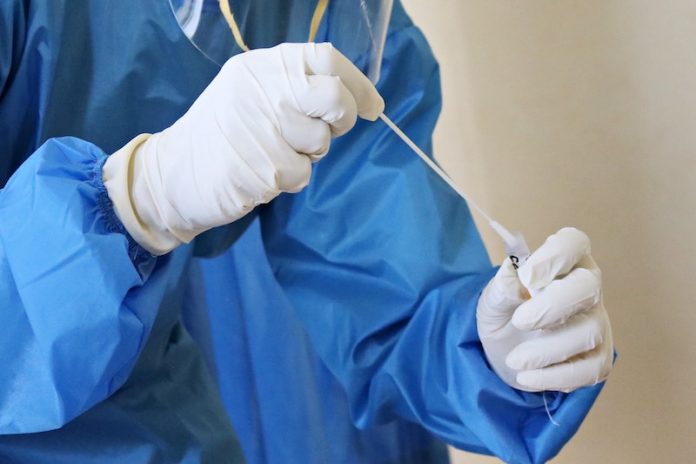
In a new study from Rutgers, researchers found testing alone is missing some people with the virus, especially those at high risk who need therapeutic treatments.
They found that hospital patients early in the pandemic who had repeatedly negative RT-PCR tests but exhibited signs and/or symptoms of the disease were half as likely to receive treatment as those who tested positive.
The findings support treatment for COVID-19 based on clinical judgment and not solely on tests, especially for high-risk patients.
In the study, the team compared the blood samples of hospital patients who had two RT-PCR negative tests against samples from RT-PCR-confirmed positive patients.
They found the people who repeatedly tested negative and had symptoms without an alternative diagnosis had a similar antibody profile as those who were RT-PCR-confirmed positive.
Patients with symptoms who tested negative and had an alternative diagnosis were similar to those who were negative without symptoms.
Since this study was done early in the pandemic before the infection spread and vaccines were rolled out, these findings provide presumptive data that these symptomatic patients without an alternative diagnosis who repeatedly tested negative had COVID due to a similar prevalence and level of antibodies as confirmed cases.
The team notes that some of their study participants also appeared to have false negative RT-PCR test results soon after symptoms developed, suggesting that even within the first week, RT-PCR testing can miss COVID-19 cases.
The study found that despite similar rates of disease progression, only 43% of the severely-ill patients who repeatedly tested negative but had clinical signs received COVID treatment compared to 79% of the severely-ill symptomatic RT-PCR-confirmed positive patients.
These findings emphasize the critical role that clinical diagnosis plays in determining whether to treat a patient for COVID and that clinicians should not solely rely on RT-PCR tests
If you care about Covid, please read studies about two paths toward ‘super immunity’ to COVID-19, and what you need to know about the latest antibody COVID-19 therapies.
For more information about Covid, please see recent studies about low-cost drug that can treat COVID-19, and results showing that many COVID-19 survivors suffer from a new disability, lung damage.
The study is published in BMC Infectious Diseases and was conducted by David Alland et al.
Copyright © 2022 Knowridge Science Report. All rights reserved.



